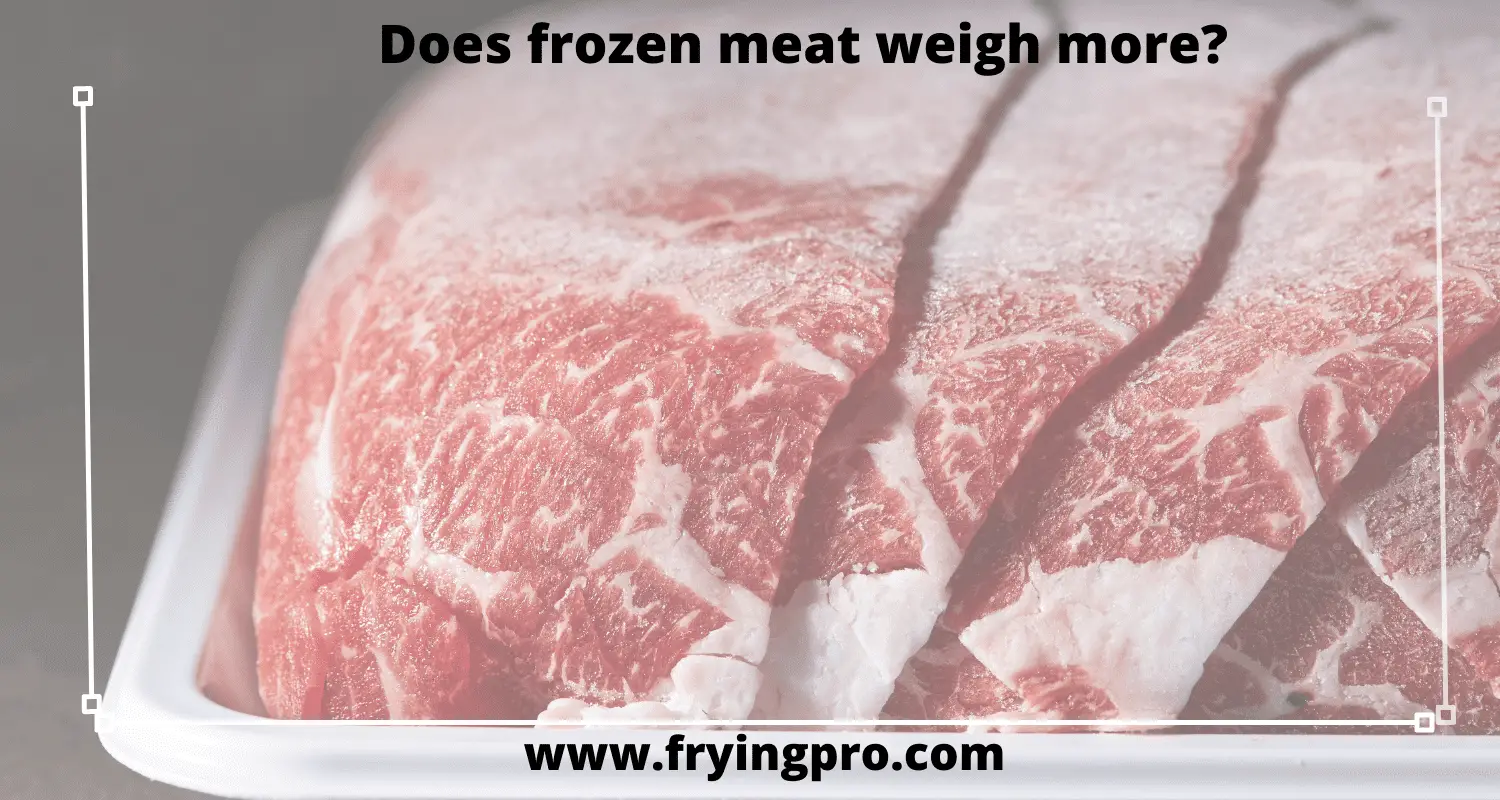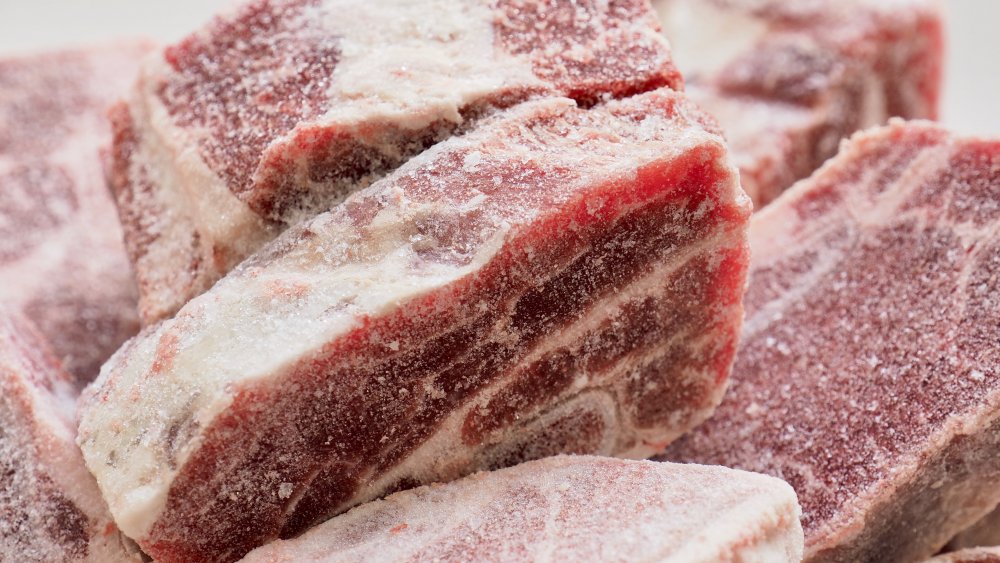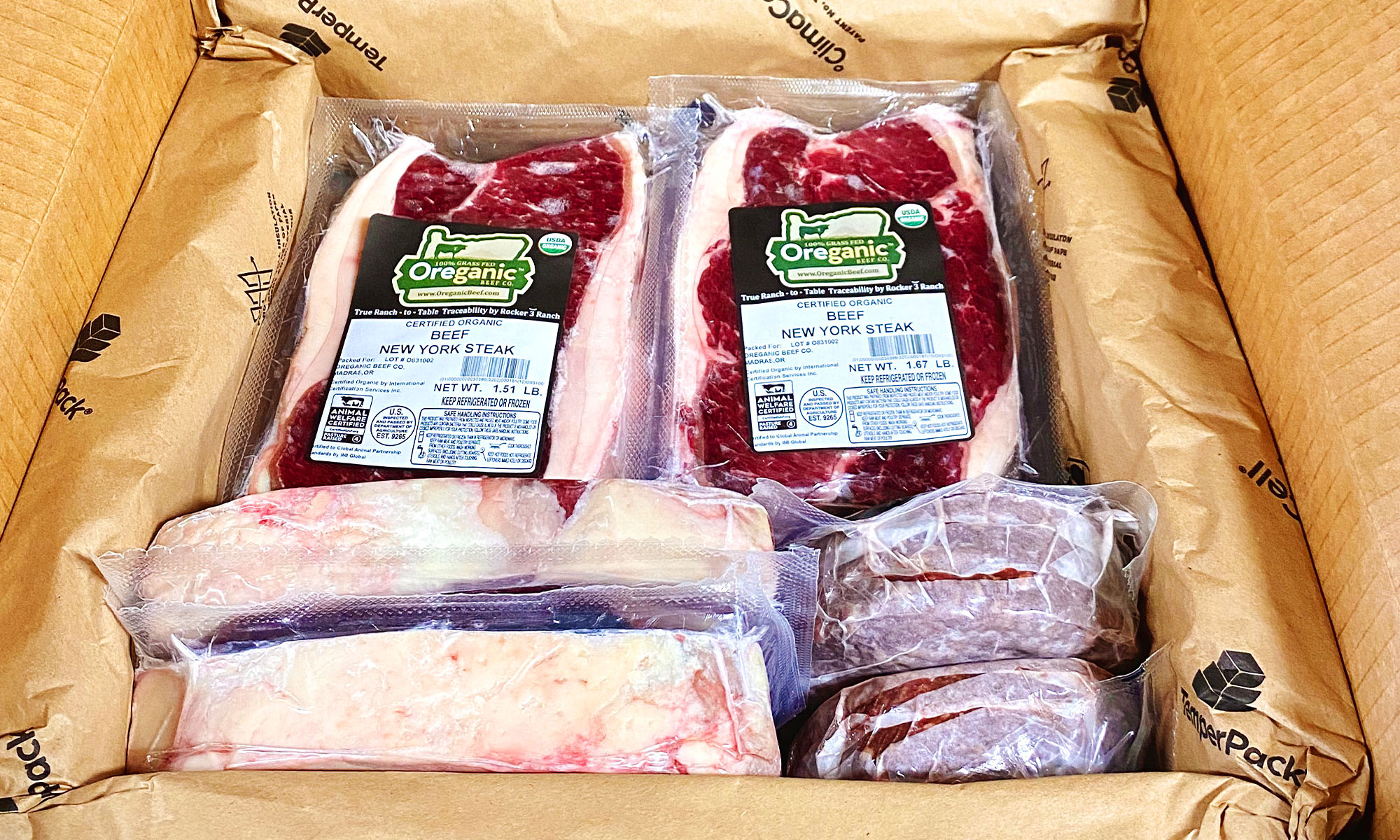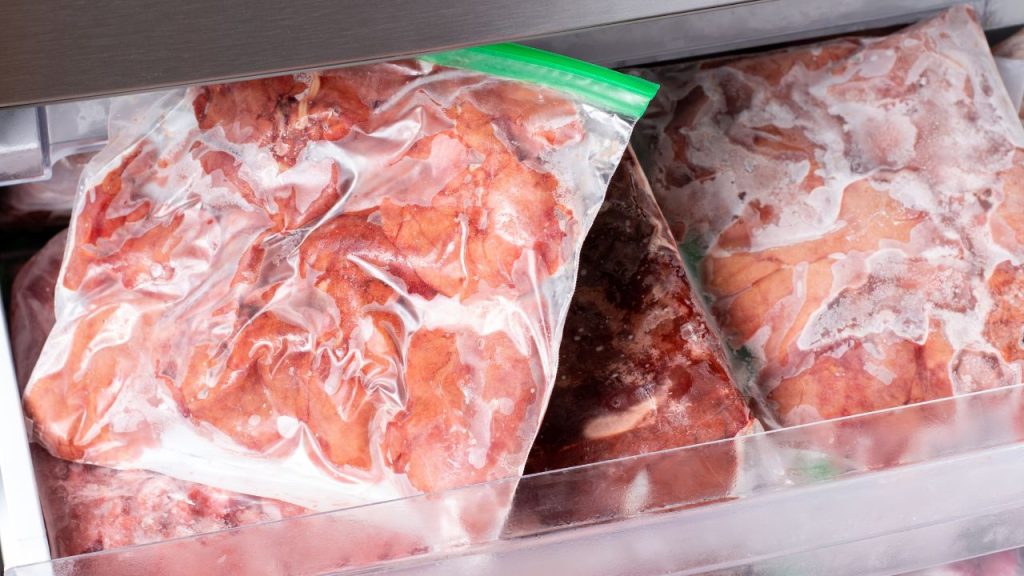
Does Frozen Meat Weigh More Than Thawed Meat? Fanatically Food
Freshness is most often pointed to as a big reason to only buy fresh meat (meaning meat that has not been frozen). However, never being frozen does not mean the meat is fresh. It may be fresh. But it may have also sat on the meat counter at the grocer until it has lost much of its quality, texture and nutrition.

Does Frozen Meat Weigh More? A ScienceBacked Answer Frying Pro
Yes, frozen meat weighs 15-28% more than fresh meat. It is due to the high moisture content in the meat. When meat is frozen, water inside it freezes, which increases the weight. When frozen meat is defrosted, a juice called thaw exudate is released. About 20% of meat's weight loss occurs due to this juice's release.

How to Tell If Frozen Meat is Bad
The difference in fresh vs frozen meat isn't much. The meat you buy from the butcher shop is fresh, which means never frozen. You purchase the meat from a butcher's shop and cook the meat without freezing it. Butchers typically prepare fresh meat each day using meat cleavers, and people buy it within a few short hours of it being prepared.

Does Frozen Meat Weigh More Than Thawed Meat? Fanatically Food
When it comes to the weight of meat, frozen meat does typically weigh more than thawed meat. As meat begins to thaw, the water and liquids within it start to seep out, causing the meat to lose weight. This can be as much as 30% of its size and volume simply from water draining out. The amount of water a specific cut of meat holds depends on.

Which is Better Fresh or Frozen Meat? Medicareful Living
Typically, yes frozen meat does weigh more than thawed meat, and we'll explain why. As meat begins to thaw, the water and liquids within it begin to seep out. This causes the meat to lose weight as these liquids exit the meat and is no longer considered in its overall weight. You may not even notice this is occurring.

Does Meat Weigh More Frozen—And If So, What Causes That? • BBQ Host
The truth is, frozen meat does weigh less than fresh meat, but the difference is minimal. When meat is frozen, the water within the meat forms ice crystals, which can cause a slight reduction in weight. However, this weight loss is usually around 2-5%, so it's not significant enough to affect most recipes or cooking methods.

You Should Never Put Frozen Meat In Your Slow Cooker. Here's Why
When meat is frozen, the weight increases. But the increase is so little that it will be a slight weight change. We know that frozen water and liquid water weigh the same. So, the frozen water inside the meat should not have made any difference. But it turns out that meat loses moisture when thawed.

does a frozen turkey weigh more than a thawed turkey DeKookGuide
Yes, frozen meat weighs more than thawed meat. The ice crystals on the frozen meat increase the liquid volume and add to the weight on the kitchen scale. Additionally, frozen meat may be slightly heavier than thawed meat because of the trapped air pockets. The increase in weight of frozen meat also depends on the type of meat and the cut.

How Long Is Frozen Meat Good For? How to Safely Freeze Meat
Well, fresh meat has a much firmer texture, better flavor, and carries more nutrients. Because of the ice crystals of frozen meat, the texture and flavor will not be as good, but the shelf life has been prolonged, which helps prevent food waste. When it comes to which is best, it depends on your preference.

How Long Does Frozen Meat Last? Here’s What You Need to Know About
The quality of meat is an important factor to consider when deciding whether to cook frozen or thawed meat. High-quality meat is rich in protein and has lower water content than lower quality meat. Therefore, it will lose less moisture during the thawing process, resulting in a lower weight difference between frozen and thawed meat.

How Long Can Meat Be Frozen? Freezer Tips For Storing Beef.
Does freezing meat affect weight? Typically, yes frozen meat does weigh more than thawed meat, and we'll explain why. As meat begins to thaw, the water and liquids within it begin to seep out. This causes the meat to lose weight as these liquids exit the meat and is no longer considered in its overall weight.

Frozen Meat Prepare for Your Next Barbecue
Therefore, yes, frozen meat does weigh more than its fresh counterpart. However, this increase in weight is not due to the meat itself, but rather the water molecules added during the freezing process. Another factor that contributes to the increased weight of frozen meat is freezer burn.

Does Frozen Meat Weigh More than Thawed Meat? Explained
The beef you purchase from your local butcher to cook immediately is fresh, not frozen. Fresh beef should have a bright red color and be firm and dry to the touch. Fresh beef should be cooked immediately or shortly after purchase to ensure its quality and that it does not begin growing harmful bacteria.A mild, meaty smell to the beef is normal.

Does Frozen Meat Weigh More Than Thawed Meat? Fanatically Food
According to experts, frozen meat does indeed weigh more than thawed meat. This is because when meat is frozen, there are water molecules that become trapped inside the meat. These water molecules add to the overall weight of the meat, making it heavier than thawed meat. But, there is a lot more to this story.

A Beginner's Guide On How To Properly Freeze Different Meats
A piece of meat weighs more when it's frozen because the natural moisture within the protein strands has turned to ice. On average, meat will weigh 15 to 30 percent more in its frozen state than it did when it was fresh. Once the meat is thawed, it will expel moisture, which reverts it to its previous weight (or close enough).

Does Frozen Meat Weigh More?
Meat Quality: The quality of the meat itself is a significant factor to consider when weighing frozen meat. High-quality cuts generally retain more moisture, resulting in a smaller weight difference between frozen and thawed states. In contrast, lower-quality cuts may experience greater water loss during freezing, leading to a more noticeable.